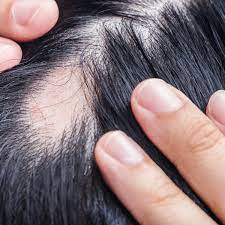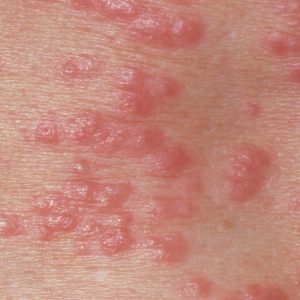Currently Empty: ₨0.00
Hair loss (alopecia)
Causes
People typically lose 50 to 100 hairs a day. This usually isn’t noticeable because new hair is growing in at the same time. Hair loss occurs when new hair doesn’t replace the hair that has fallen out.
Hair loss is typically related to one or more of the following factors:
- Family history (heredity). The most common cause of hair loss is a hereditary condition that happens with aging. This condition is called androgenic alopecia, male-pattern baldness and female-pattern baldness. It usually occurs gradually and in predictable patterns — a receding hairline and bald spots in men and thinning hair along the crown of the scalp in women.
- Hormonal changes and medical conditions. A variety of conditions can cause permanent or temporary hair loss, including hormonal changes due to pregnancy, childbirth, menopause and thyroid problems. Medical conditions include alopecia areata (al-o-PEE-she-uh ar-e-A-tuh), which is immune system related and causes patchy hair loss, scalp infections such as ringworm, and a hair-pulling disorder called trichotillomania (trik-o-til-o-MAY-nee-uh).
- Medications and supplements. Hair loss can be a side effect of certain drugs, such as those used for cancer, arthritis, depression, heart problems, gout and high blood pressure.
- Radiation therapy to the head. The hair may not grow back the same as it was before.
- A very stressful event. Many people experience a general thinning of hair several months after a physical or emotional shock. This type of hair loss is temporary.
- Hairstyles and treatments. Excessive hairstyling or hairstyles that pull your hair tight, such as pigtails or cornrows, can cause a type of hair loss called traction alopecia. Hot-oil hair treatments and permanents also can cause hair to fall out. If scarring occurs, hair loss could be permanent.
Hemorrhoids (HEM-uh-roids)
Causes
The veins around the anus tend to stretch under pressure and may bulge or swell. Hemorrhoids can develop from increased pressure in the lower rectum due to:
- Straining during bowel movements.
- Sitting for long periods of time, especially on the toilet.
- Having chronic diarrhea or constipation.
- Being obese.
- Being pregnant.
- Having anal intercourse.
- Eating a low-fiber diet.
- Regularly lifting heavy items.
Risk factors
As people age, the risk of hemorrhoids increases. That’s because the tissues that support the veins in the rectum and anus can weaken and stretch. This also can happen during pregnancy because the baby’s weight puts pressure on the anal region.
Complications
Complications of hemorrhoids are rare but may include:
- Anemia. Rarely, ongoing blood loss from hemorrhoids may cause anemia. Anemia is when there aren’t enough healthy red blood cells to carry oxygen to the body’s cells.
- Strangulated hemorrhoid. When the blood supply to an internal hemorrhoid is cut off, the hemorrhoid is called strangulated. Strangulated hemorrhoids can cause extreme pain.
- Blood clot. Sometimes a clot can form in a hemorrhoid. This is called a thrombosed hemorrhoid. Although not dangerous, it can be extremely painful and sometimes needs to be drained.
Scabies
Causes
Scabies is caused by a tiny, eight-legged mite. The female mite burrows just under the skin and makes a tunnel where it lays eggs.
The eggs hatch, and the mite larvae travel to the surface of the skin, where they mature. These mites can then spread to other areas of the skin or to the skin of other people. Itching is caused by the body’s allergic reaction to the mites, their eggs and their waste.
Close skin-to-skin contact and, less often, sharing clothing or bedding with a person who has scabies can spread the mites.
Pets don’t spread scabies to humans. The scabies mites that affect animals don’t survive or reproduce in people.
However, coming in contact with an animal that has scabies may cause brief itching if the mite gets under the skin. But within a few days, the mite will die. So treatment isn’t needed.
Showing all 3 results



